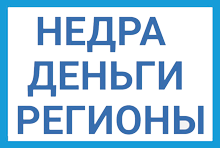The fines and suspension of the NGO activities contradict the priorities of the development of civil society announced by the state and damage international reputation of Kazakhstan. Today Echo and International Legal Initiative organizations have been fined 400 MCI (1,166,800 KZT) each and their activities have been suspended for 3 months. Kazakhstan International Bureau for Human Rights and Rule of Law was fined 800 MCI (2,333,600 KZT) with a suspension of activities for 3 months. Another organization Erkindik Qanaty was fined 100 MCI (277 800 KZT). Thus, the total amount of fines for only 4 non-governmental organizations amounted to almost 5 million tenge. In the near future, this amount for all organizations can reach tens of millions tenge.
As a reminder, back in the period between November and December 2020, many Kazakhstani NGOs received notifications from the tax authorities about violations. This refers to the Article 460-1 of the Administrative Code of the Republic of Kazakhstan: "Violation of the procedure for submitting information on the receipt of money and (or) other property from foreign states, international and foreign organizations, foreigners, stateless persons or their spending." There are some more public organizations ahead with a predictable outcome on this issue. The current situation shows the imperfection of the administrative process carried out by the state revenue bodies and the absurdity of the punishment provided second part of the Article 460-1 which says that for any inaccuracy, technical mistake, which can be easily eliminated by submitting adjusted reporting forms, large fines and suspension of activities are mandatory. The need for radical change of this article, or even its exclusion from the Code of Administrative Offenses, is obvious.
By suspending the work of public organizations, the state not only deprives thousands of citizens of the country, who are assisted by human rights defenders, and educational opportunities that are provided by NGOs which are under pressure. As a result, hundreds of NGOs’ employees find themselves without income for three months. Any organization can hardly survive even such a period of downtime. With regard to media projects, the suspension of any resource for several months means its actual destruction. One of such projects may be, for example, Factcheck.kz, the first fact-checking resource in Central Asia, implemented by MediaNet International Centre for Journalism (which faces both suspension of activities and a fine of 5.5 million tenge). A special contrast to the situation is given by the fact that Factcheck.kz is the part of the International Fact-Checking Network which has been nominated for the Nobel Peace Prize. It is noteworthy that the public organizations were subjected to such pressure on the eve of the parliamentary and local elections, which is regarded as a way of political pressure. A number of international organizations and diplomatic missions have already expressed concern about this. Most of the "violations" were manifested in the form of untimely or inaccurate notifications about delivery of reports on grants received from international donors, as well as technical mistakes. For many organizations, "inaccuracies" appeared due to the difference in exchange rates or the provision of information according to the agreement, but not upon receipt of funds (sometimes tranches vary). Besides, the problems have occurred due to changes in the rules for reporting foreign financing. That is, the difference in numbers presented was due to the circumstances and was not an intentional misstatement. It is especially important to note that all so-called "violations" do not relate to the payment of taxes or the provision of tax reporting, did not entail any arrears to the budget and generally any damage to anyone. This reporting is of an informational nature, where some discrepancies or irregularities are not associated with intent illegal actions, and punishment look completely disproportionate. According to the law, in relation to such violations, in addition, there is a limitation period for bringing to administrative responsibility - 2 months, but the tax authorities prefer to consider them as tax violations with a maximum period of 5 years.
The state revenue authorities are determined to punish independent organizations as much as possible, ignoring the possibility of eliminating mistakes. Despite the fact that the NGOs under pressure made necessary amendments, the tax authorities still consider these “violations” as providing “inaccurate information” and do not take into account that the revealed discrepancies or technical mistakes have long been eliminated. Moreover, such attitude of the tax authorities towards public organizations devalues the message about the need for the development of civil society voiced by the head of the state Kassym-Jomart Tokayev in his Address to the People of Kazakhstan, as well as the Concept of Civil Society Development until 2025, which were developed by the Ministry of Information and Social Development of the Republic of Kazakhstan on behalf of the head of state.
Contact us:
Aina Shormanbayeva +77015168787
Duman Smakov +77026292866
Adil Jalilov +77774444344















